DEGREES OF MEMBERSHIP
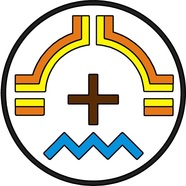
It's easy to join the Correllian Tradition. We believe strongly in celebratory as well as initiatory Wicca. Because of this we welcome people to join our Tradition's Outer Court. We believe that the Goddess is for everyone, and that anyone can benefit from the timeless truths of the Wiccan religion.
The Inner Court is the Priesthood of our Tradition. Students for the Priesthood, also referred to as Dedicants, engage in a rigorous program of study with an assigned mentor, culminating in legal ordination for most of our Clergy. Our Lessons for First degree Priesthood are considered among the best available, and cover many subjects, which the student is expected to learn about in depth. Following completion of our First Degree you may continue to study up to the Third Degree, which is the Correllian High Priesthood.
To find out more about our Degree Lessons, visit our Seminary HERE.
The Inner Court is the Priesthood of our Tradition. Students for the Priesthood, also referred to as Dedicants, engage in a rigorous program of study with an assigned mentor, culminating in legal ordination for most of our Clergy. Our Lessons for First degree Priesthood are considered among the best available, and cover many subjects, which the student is expected to learn about in depth. Following completion of our First Degree you may continue to study up to the Third Degree, which is the Correllian High Priesthood.
To find out more about our Degree Lessons, visit our Seminary HERE.
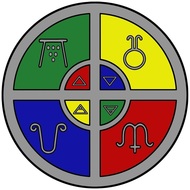
THE OUTER COURT - MEMBERS OF THE TRADITION
OUTER COURT MEMBER
Outer Court Members are registered members of the Correllian Tradition
They may attend public ceremonies, take part in many Temple activities, and belong to Temple Orders. The Outer Court constitutes the laity of the Tradition. By far the largest percentage of our membership, they form the back bone of our Tradition.
THE INNER COURT - PRIESTHOOD OF THE TRADITION
DEDICANT
A Dedicant is a person who has dedicated themselves to study and training toward the Priesthood. During this period the Dedicant is considered a member of the Inner Court. Upon completion of First Degree Studies, a Dedicant may return to the Outer court, or apply for First Degree initiation.
HONORARY
In the Correllian Tradition the term Honorary is used to describe a person who holds an honorary rank in the Inner Court of the Tradition. Most often Honorary status is granted to initiated clergy from other Traditions who are affiliated with a given Correllian Temple as Outer Court Members, but have not pursued Correllian clerical training. As Honorary Clergy they are welcome to attend ceremonies that are for clergy only, such as initiations, and even sometimes hold office within the Temple. Less often the term is used for an Outer Court Member of the Tradition who is granted Honorary Clerical status because of life experience or services rendered to the Tradition. Honorary status is not often given, and is reserved for highly respected people who have truly earned it.
OUTER COURT MEMBER
Outer Court Members are registered members of the Correllian Tradition
They may attend public ceremonies, take part in many Temple activities, and belong to Temple Orders. The Outer Court constitutes the laity of the Tradition. By far the largest percentage of our membership, they form the back bone of our Tradition.
THE INNER COURT - PRIESTHOOD OF THE TRADITION
DEDICANT
A Dedicant is a person who has dedicated themselves to study and training toward the Priesthood. During this period the Dedicant is considered a member of the Inner Court. Upon completion of First Degree Studies, a Dedicant may return to the Outer court, or apply for First Degree initiation.
HONORARY
In the Correllian Tradition the term Honorary is used to describe a person who holds an honorary rank in the Inner Court of the Tradition. Most often Honorary status is granted to initiated clergy from other Traditions who are affiliated with a given Correllian Temple as Outer Court Members, but have not pursued Correllian clerical training. As Honorary Clergy they are welcome to attend ceremonies that are for clergy only, such as initiations, and even sometimes hold office within the Temple. Less often the term is used for an Outer Court Member of the Tradition who is granted Honorary Clerical status because of life experience or services rendered to the Tradition. Honorary status is not often given, and is reserved for highly respected people who have truly earned it.
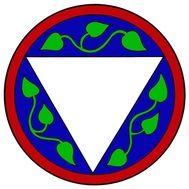
FIRST DEGREE
A Novice Priest/ess. The First Degree Priest/ess should be familiar with the details of the Wiccan faith, having a thorough grounding in Wiccan philosophy and traditions. The First Degree Priest/ess should be able to answer most questions about Wicca on a practical (as opposed to philosophical) level. The First Degree Priest/ess should be able to take any role in ritual with reasonable confidence, short of ritual leader.
A Novice Priest/ess. The First Degree Priest/ess should be familiar with the details of the Wiccan faith, having a thorough grounding in Wiccan philosophy and traditions. The First Degree Priest/ess should be able to answer most questions about Wicca on a practical (as opposed to philosophical) level. The First Degree Priest/ess should be able to take any role in ritual with reasonable confidence, short of ritual leader.
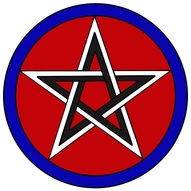
SECOND DEGREE
Full Priest/ess. The Second Degree Priest/ess should be able to take any role in ritual, and answer most questions about Wicca, whether practical or philosophical. The Second Degree Priest/ess should be able to manipulate energy in ritual and other settings, with reasonable competence. The Second Degree Priestess should be familiar with most Wiccan rituals and techniques, and be able to undertake them without direct guidance.
Full Priest/ess. The Second Degree Priest/ess should be able to take any role in ritual, and answer most questions about Wicca, whether practical or philosophical. The Second Degree Priest/ess should be able to manipulate energy in ritual and other settings, with reasonable competence. The Second Degree Priestess should be familiar with most Wiccan rituals and techniques, and be able to undertake them without direct guidance.
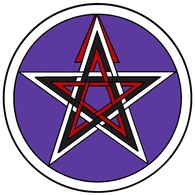
THIRD DEGREE
High Priest/ess. The Third Degree High Priest/ess should be able to answer all questions about Wicca, and to facilitate all Wiccan rituals met with in the ordinary service of a Temple. The Third Degree High Priest/ess should be competent in energy work, should be able to deliver an oracle or Spirit message, and perform the ceremony of Drawing Down the Moon.
High Priest/ess. The Third Degree High Priest/ess should be able to answer all questions about Wicca, and to facilitate all Wiccan rituals met with in the ordinary service of a Temple. The Third Degree High Priest/ess should be competent in energy work, should be able to deliver an oracle or Spirit message, and perform the ceremony of Drawing Down the Moon.
CLERICAL INITIATION
Only a Third Degree High Priest/ess or one acting under the imperium of a Third Degree High Priest/ess can initiate persons into the Correllian Clergy. When a Cleric acting under the imperium of a Third Degree High Priest/ess achieves Third Degree status in their own right, any initiations which they have performed under the imperium of their Sponsor shall thereafter be considered part of their own lineage. If however a Cleric acting under the imperium of a Sponsor never achieves Third Degree status, initiations they have performed shall trace through the lineage of their Sponsor.
JOINING SPECIFIC TEMPLES
The Correllian Tradition has a number of Temples. Each Temple has its own leadership and policies, which have been designed especially to suit its own needs. If there is a Correllian Temple near you, you may wish to join it. To do this, you must apply to the individual Temple itself.
Membership in either the Outer or the Inner Court of the Correllian Tradition does not in and of itself guarantee acceptance into the membership of any given Correllian Temple. Individual Temples are free to accept or reject members at their discretion. However all Correllian Temples are bound to recognize Correllian Degrees.
Only a Third Degree High Priest/ess or one acting under the imperium of a Third Degree High Priest/ess can initiate persons into the Correllian Clergy. When a Cleric acting under the imperium of a Third Degree High Priest/ess achieves Third Degree status in their own right, any initiations which they have performed under the imperium of their Sponsor shall thereafter be considered part of their own lineage. If however a Cleric acting under the imperium of a Sponsor never achieves Third Degree status, initiations they have performed shall trace through the lineage of their Sponsor.
JOINING SPECIFIC TEMPLES
The Correllian Tradition has a number of Temples. Each Temple has its own leadership and policies, which have been designed especially to suit its own needs. If there is a Correllian Temple near you, you may wish to join it. To do this, you must apply to the individual Temple itself.
Membership in either the Outer or the Inner Court of the Correllian Tradition does not in and of itself guarantee acceptance into the membership of any given Correllian Temple. Individual Temples are free to accept or reject members at their discretion. However all Correllian Temples are bound to recognize Correllian Degrees.
